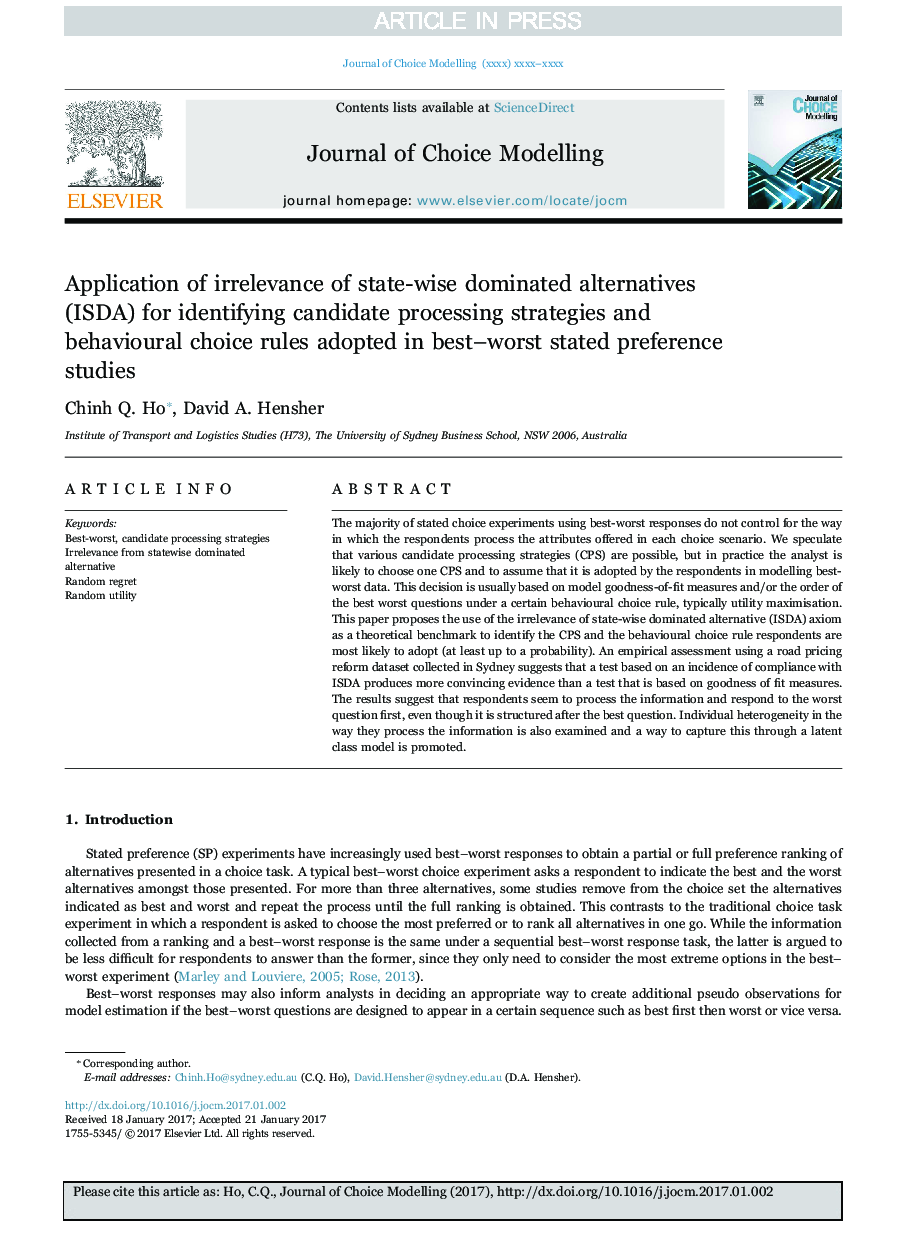| کد مقاله | کد نشریه | سال انتشار | مقاله انگلیسی | نسخه تمام متن |
|---|---|---|---|---|
| 7356839 | 1478389 | 2017 | 10 صفحه PDF | دانلود رایگان |
عنوان انگلیسی مقاله ISI
Application of irrelevance of state-wise dominated alternatives (ISDA) for identifying candidate processing strategies and behavioural choice rules adopted in best-worst stated preference studies
دانلود مقاله + سفارش ترجمه
دانلود مقاله ISI انگلیسی
رایگان برای ایرانیان
کلمات کلیدی
موضوعات مرتبط
علوم انسانی و اجتماعی
مدیریت، کسب و کار و حسابداری
بازاریابی و مدیریت بازار
پیش نمایش صفحه اول مقاله

چکیده انگلیسی
The majority of stated choice experiments using best-worst responses do not control for the way in which the respondents process the attributes offered in each choice scenario. We speculate that various candidate processing strategies (CPS) are possible, but in practice the analyst is likely to choose one CPS and to assume that it is adopted by the respondents in modelling best-worst data. This decision is usually based on model goodness-of-fit measures and/or the order of the best worst questions under a certain behavioural choice rule, typically utility maximisation. This paper proposes the use of the irrelevance of state-wise dominated alternative (ISDA) axiom as a theoretical benchmark to identify the CPS and the behavioural choice rule respondents are most likely to adopt (at least up to a probability). An empirical assessment using a road pricing reform dataset collected in Sydney suggests that a test based on an incidence of compliance with ISDA produces more convincing evidence than a test that is based on goodness of fit measures. The results suggest that respondents seem to process the information and respond to the worst question first, even though it is structured after the best question. Individual heterogeneity in the way they process the information is also examined and a way to capture this through a latent class model is promoted.
ناشر
Database: Elsevier - ScienceDirect (ساینس دایرکت)
Journal: Journal of Choice Modelling - Volume 25, December 2017, Pages 40-49
Journal: Journal of Choice Modelling - Volume 25, December 2017, Pages 40-49
نویسندگان
Chinh Q. Ho, David A. Hensher,